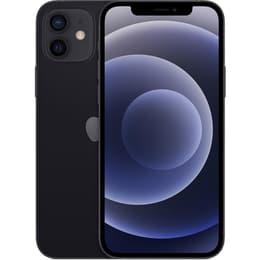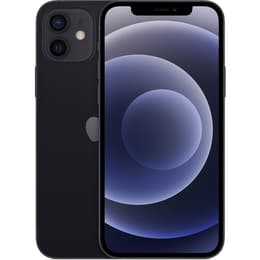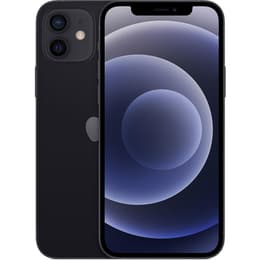
You might hear a lot of mis-information about 5G causing this, causing that, and generally being a big scary problem. But, don’t let hearsay guide your decisions when you can simply get better informed. Here we shed a light on what 5G is, how it has come about and what it means for you and mobile data speeds and performance.
So, what is 5G Exactly?
In simple terms, 5G is just the fifth-generation technology standard for broadband phone networks (the successor to 4G networks basically). The point being, to provide greater bandwidth and far higher speeds - potentially up to 100x faster than current 4G networks can offer.
This means downloads could take 1/100th of the time, your internet will perform faster, streaming will be much smoother, sending and receiving information will be quicker, and all-round service will be better. This could also be a big step forwards in terms of the scope of smart technology support and interconnectivity that 4G simply won’t be able to handle as technology advances.
The tech side of it
In more precise terms, 5G is better because it used a different type of data signal that is less prone to interference than previous methods. This is called OFDM (Orthogonal frequency-division multiplexing). This might sound complex (and the arrangements behind it certainly are), but it is basically a clever way to split the data signal over different channels to reduce interference. Something not far from what 3G and 4G have worked on in the past, but in a more effective way.
This requires more sophisticated cell towers and higher frequency radio-waves and microwaves. Higher frequency microwaves might sound like a scary term, but as with radio-waves and microwave signals currently used in phone networks, research has shown no evidence of harm to individuals in any of these cases.
Certainly, you shouldn’t be comparing the signals your phone sends and receives to the methods your home microwave uses to heat your soup. This is the difference between Ionizing radiation (microwave ovens, sunlight, x-rays and gamma rays) which can be harmful, and non-ionising radiation (ultraviolet and visible light, infrared, cell-tower microwaves and radio waves). You can learn more about the differences here (very interesting for science buffs).
How do they setup 5G networks?
To get 5G operational, we of course need additional cell towers to support it. However, even without the advent of 5G, with mobile usage constantly growing in the UK the need for additional towers to support greater consumer needs was always going to require more towers. What 5G could do is actually make this more efficient, with towers providing better bandwidth than earlier variants.
Additionally, 5G’s greater power and ability to support future tech, also means it may be able to develop as an alternative to generally hard-line internet services for Laptops, smart TVs and the home in general. This could also mean greater competition for home and office internet services and more competitive pricing for the customer in the long run.
Future tech support could lead to greater IoT (internet of Things) support, where smart technology could help to connect everything throughout a city, from smartphones to the home, cars, traffic and even public services including garbage collection, leading to the term “smart city”.
Negatives of 5G
The fact is that aside from the need to build new towers, and for you to buy a new phone to access it, there aren’t any real negatives to 5G. It’s just a quicker more effective way to transmit data to and from your phone.
Wild theories ranging from 5G spreading Covid, causing cancer or used as part of a mind control setup (seriously, look it up), should be regarded as that; wild theories.
The fact is that 5G isn’t any more or less harmful than any other mobile technology out there. Sure, it’s healthy to be sceptical about new technology, we should be equally sceptical of fear-mongering and hidden agendas.
Is it worth upgrading your phone to 5G yet?
They began deploying 5G networks worldwide in 2019, but of course some countries, based on uptake and infrastructure are a lot further ahead than some others. Korea notably already has quite a well advanced 5G network, but the UK is also one of those countries at a more advanced stage in Europe.
All of the major UK network providers are already quite well advanced in their 5G networks: EE, Vodafone, Three, BT and O2. Plus, with 5G phones now widely available from most top manufacturers (including Apple, Samsung, Google and more). You’re certainly not limited in your options when looking for a 5G phone.
Also, it’s worth noting that even if your phone supports 5G, it will still support 4G and 3G. Think of 5G as just another slice of the data cake. A far more filling slice, that not everyone is going to be able to get their spoon into yet unless they have a 5G phone.
So by opting for a 5G phone now, your basically getting a better service now (make sure to check availability in your area), and a head start of some really quite nifty developments in the near future.
You can already find a range of refurbished 5G phones (at 4G prices) on Back Market, so take a look and see if there’s a 5G phone for you.














































